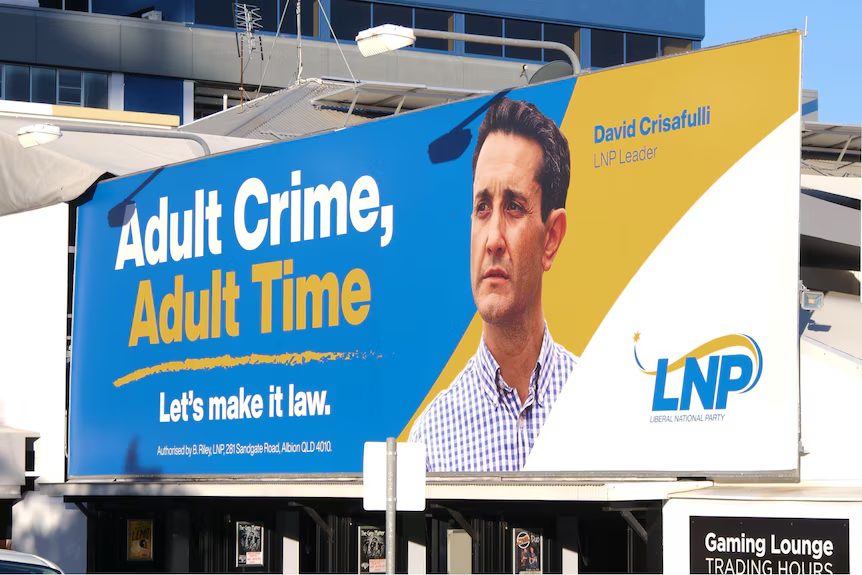
The Crisafulli Government’s Adult Crime, Adult Time laws have been slammed by spokespersons from the United Nations, Aboriginal and Torres Strait Islander organisations, and legal, health and criminology experts for being discriminatory and in violation of human rights.
UN experts warn the LNP’s youth crime legislation will create “a future under-class of Australians’. They posit that the proposed Adult Crime, Adult Time laws are “incompatible with basic child rights”, urging Queensland to repeal the government’s headline youth crime legislation.
While the laws are supposedly to “make Queensland safer”, UN representatives highlight that the Making Queensland Safer (Adult Crime, Adult Time) Amendment Bill would have “an especially negative impact on the lives of Indigenous children, who are already disproportionately represented in the criminal legal system.”
The laws entirely remove “detention as a last resort” provisions from legislation, open the children’s court to media, and allow for kids as young as ten to receive the same maximum sentence as adults for 13 offences.
The UN has repeatedly criticised the Crisafulli Government’s laws, noting that they show a ‘flagrant disregard’ for children’s rights. The government has overridden Queensland’s Human Rights Act for the next five years, with officials conceding that the laws will have the biggest impact on Aboriginal and Torres Strait Islander children and are more disciplinary than necessary.
In response to the UN’s concerns, Attorney-General Deb Frecklington stated, “I acknowledge that the amendments in the bill … are incompatible with human rights,” while still advocating for them to be passed.
Similarly, the Youth Justice Minister, Laura Gerber, acknowledged that the legislation would limit “the right to protection from cruel, inhumane or degrading treatment and the right to humane treatment when deprived of liberty” due to the increased number of children held in police watch houses.
Queensland’s premier, David Crisafulli, criticised the UN in April for interfering in local politics, stating “this place will govern its laws,” and calling the representatives “United Nations boffins”.
And despite the LNP conceding that the laws are in violation of child rights, Crisafulli maintained that the UN’s “unelected officials who are a long way from this place” do not affect his viewpoint.
“Tough on crime” measures such as these are repeatedly proven to be deeply flawed. Evidence proves that the earlier a child is incarcerated, the more they are at risk of being recriminalised later in life. These laws do nothing to address the systemic causes of youth crime, such as intergenerational trauma, poverty, and racism, that are entrenched within Australian society.
Additionally, the altered allowances for journalists to attend Children’s Court proceedings fosters fear in the Queensland community. More cases of youth crime are covered in the media than under the previous government, thus creating the illusion of a larger problem than what actually exists – for Crisafulli to swoop in and save the day with these legislative changes.
Queensland already has the highest number of children behind bars in the country, according to a report by the Child Death Review Board in March. It also found that Indigenous children aged 10-17 are 23 times more likely to be in detention than their non-Indigenous peers.
Rather than investing in support policies and services for children, as the UN urges, Crisafulli’s stance on youth crime is divisive to Queenslanders. The Adult Crime, Adult Time laws reinforce damaging stereotypes and do not result in safety nor justice for everyone. In fact, it ensures the opposite, harming First Nations children and families for generations through repetitious cycles of disadvantage.
Written by Mollie Matthews
Views: 9
